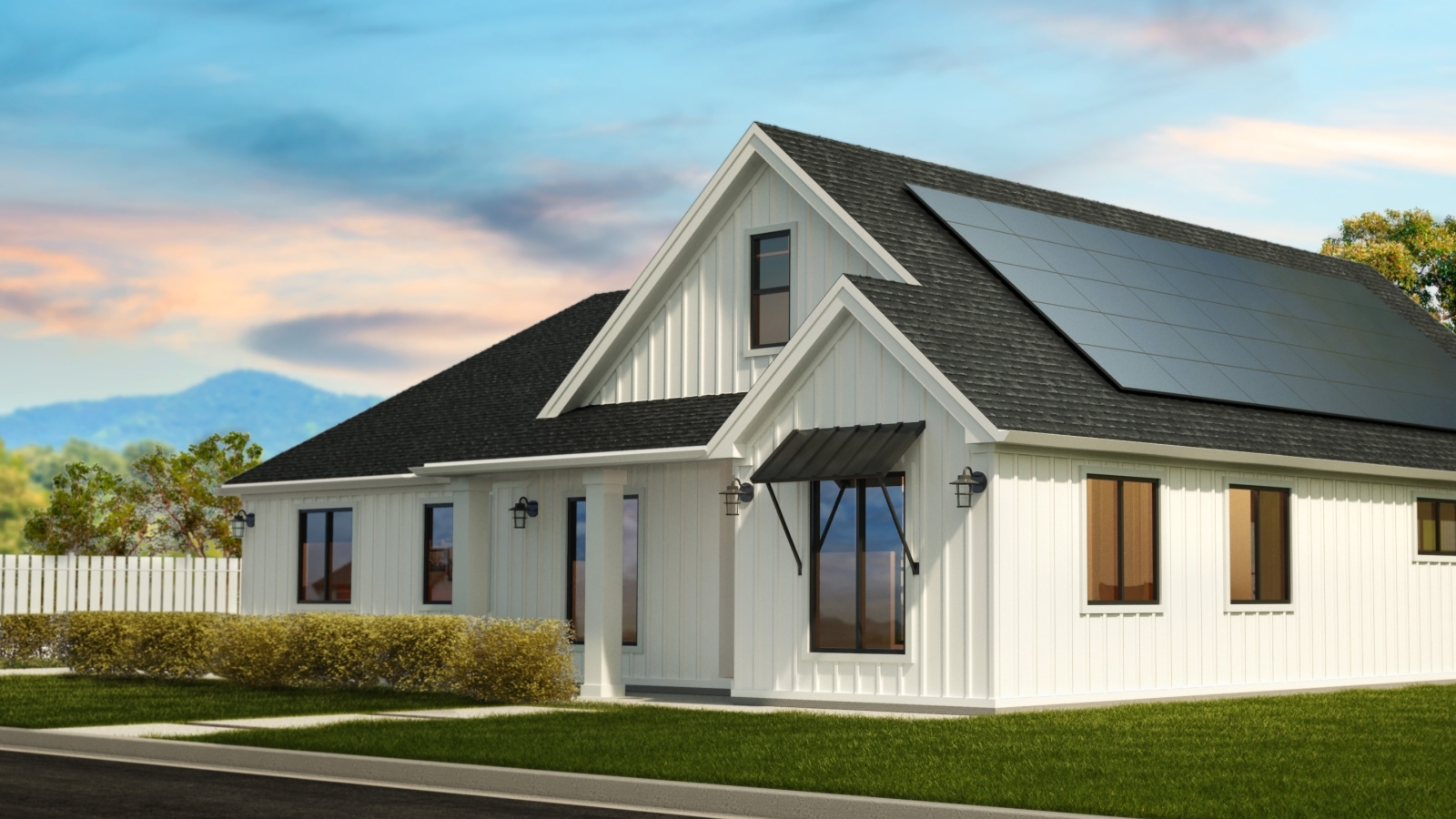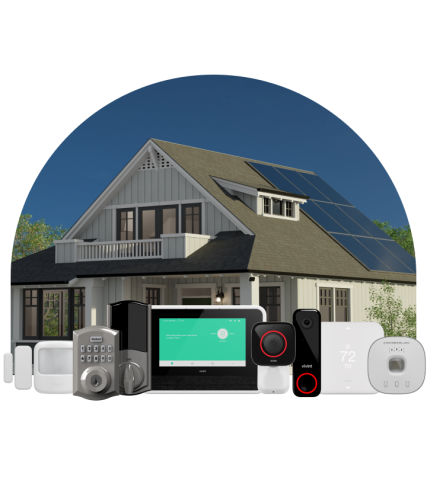Steps to renewable solar energy
Your home energy, customized
-
Get your system size and details
-
See your solar cost and energy usage
-
Learn about solar incentives in your state

Get renewable solar energy that could save you money
and protect you from rising electricity prices.
Produce your own energy and benefit from a low-cost power bill in the long run.
Get peace of mind with a no-hassle production guarantee or warranty.
Generate your own clean energy instead of relying on traditional power companies.
To ensure a smooth experience, have your electric bill on hand.
Find peace of mind with a Vivint solar energy system that’s customized
for your unique home and needs.
Purchase and finance your system
Pay a fixed rate per kWh
Own your system outright
To ensure a smooth experience, have your electric bill on hand.
No. Since 2021, Vivint has offered solar energy through its Smart Energy offering as a part of the Vivint smart home ecosystem. Sunrun actually acquired a separate company, Vivint Solar, in 2020.
To learn more about Vivint’s Smart Energy offering, click here.
Most solar panel systems work like this: Your solar panels receive sunlight, the panel cells activate and produce an electrical current, and then your solar inverter converts that current (DC electricity) into a form that can power your home (AC electricity). With Smart Energy from Vivint, the only difference is you can view your solar panel production data—system status, energy savings, lifetime conversions—on the same app you use to monitor and manage the rest of your home.
Learn more about solar energy systems and how they work.
Yes! As of 2021, Vivint Smart Home now offers Smart Energy, including solar panels and batteries. Work with your installer to find out what is available to you.
Last year, we installed over 45 megawatts of solar, bringing smart energy to about 5,000 homes. With energy prices on the rise, we’re excited to continue helping customers transition to solar. Because energy independence starts with solar panels from Vivint.
Learn more about Vivint's solar panels.
*Offer Details
Qualifying system purchase requires minimum $599.99 expenditure on equipment after all discounts have been applied, professional installation, and execution of Vivint monitoring services agreement. Click here for monthly service plan prices. DIY system purchases and reactivations of previously-installed systems not eligible for offer. Offer not available in all states or provinces. Equipment purchase may be financed separately subject to an agreement with one of Vivint's third-party financing partners. Monthly $1.48 cellular network maintenance fee applies. Taxes and local permit fees may apply.
Third-Party Financing Options Available
Financing eligibility and terms subject to credit approval by one of Vivint's third-party financing partners. Qualified customers may finance equipment purchase at 0% APR for up to 60 months. Month-to-month service agreement available when equipment is purchased upfront.
Vivint Systems & Services
System supports up to six cameras subject to sufficient WiFi speeds. Without a Vivint services plan, product and system functionality is limited (including loss of remote connectivity). Speak to a Vivint representative at the phone number in this offer for complete equipment, services, and package details, including pricing and financing details. Products and services in Louisiana provided by Vivint Louisiana Commercial Certificate #58280. See Vivint license numbers here.



